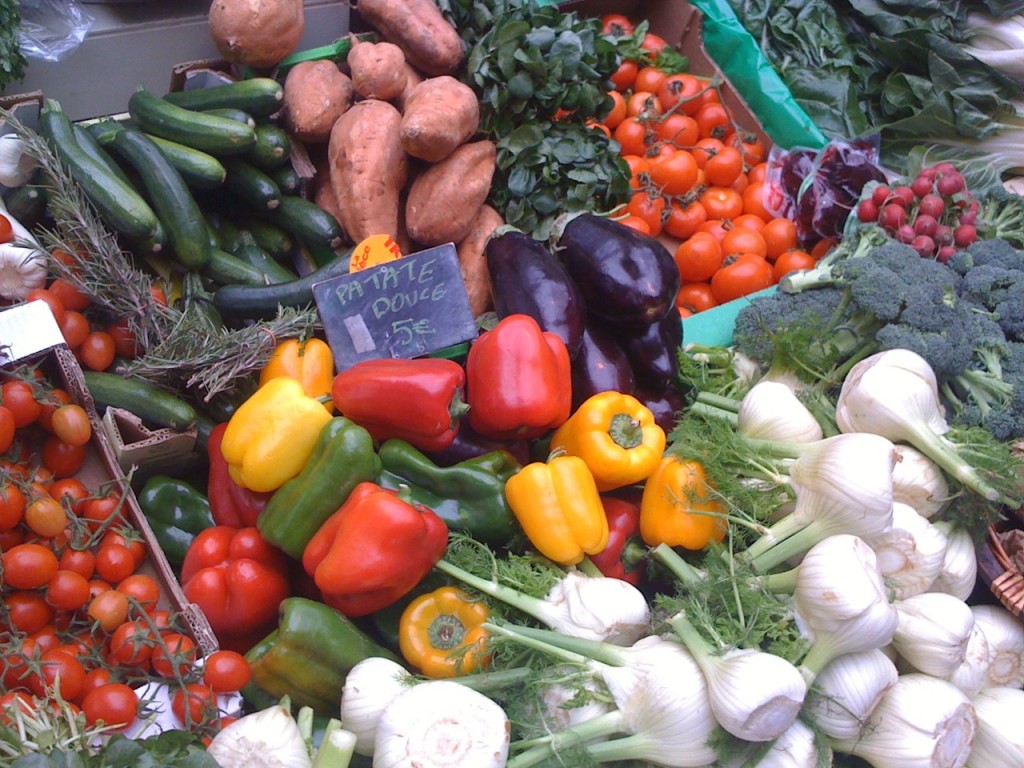By Katie Stobbart (The Cascade) – Email
Print Edition: October 8, 2014

We have an intimate relationship with food. The contents of our plates say a lot about who we are, about where and how we live. Because it’s so ingrained in our everyday lives, it can be easy to forget food is not just a source of energy; it’s also a source of political power.
As students, many of us are in the midst of a complex transitional relationship with our parents: straining away or resisting departure, at once eager to taste independence and lured back by the magic of the home-cooked meal.
The thought of Thanksgiving, for example, triggers immediate sensory memories: the warm, rich smell of my mom’s homemade dressing; the texture of moist turkey breast; and the taste of acorn squash baked with brown sugar. They’re nostalgic sensations, reminiscent of times my family ate together.
After being out on my own for two years, I’m hosting the holiday dinner for the first time, and feeling the pressure to live up to those memories. Meanwhile, I’ve made choices about my diet that no longer welcome that tasty stuffing packed with bread and sausage.
There’s a resonant connection between food and autonomy; learning to prepare our own meals is essential to our capacity to thrive independently as adults. But it can be a tense transition. Recently I have been taking a harder look at what I choose to eat, but I’ve found myself drawing an uneasy square around the day of my family’s Thanksgiving dinner as a day to slip back into my old eating habits. I’m justifying it to myself as a special occasion — but it’s not for the sake of childhood nostalgia.
It’s not those holiday scents and flavours standing in my way; it’s fear of alienation.
Even if I wasn’t hosting the dinner, I’m afraid it would cause a lot of tension with my family to suddenly start passing on most of the meal. I’ve already experienced some of that strain at informal gatherings, but to invoke it at a family holiday would make for a lot of awkward fork-to-plate clinking, as well as the unsaid, What’s wrong with the way we eat? The way we’ve always eaten?
For one, the food we’ve always eaten has been largely a result of socio-economic status. We’ve eaten plenty of boxed food, potatoes, and fast food because it’s cheaper than eating healthily, and it’s easy to find prepared food that reflects our culinary traditions. Putting a meal together can happen in less than half an hour, or less than five minutes in the microwave. Putting a healthy meal together takes much longer.
Who has the time to always buy fresh food and prepare it from scratch? Moreover, how many students have the funds? Filling my grocery cart with fresh vegetables and other unprocessed ingredients for a week’s worth of meals costs significantly more than it does to eat fast food or buy pre-packaged facsimiles of the comfort food I grew up with.
What we eat for cost and convenience moves from necessity to habit, and from habit to tradition. But the choice to improve my eating habits feels empowering: I feel healthier, more in control, and more mindful. Part of the intimacy we have with food is that we literally take it in and make it part of ourselves. Forgive the cliché: you are what you eat. Choosing what you eat, then, can be an expression of identity and of independence. It’s an act of autonomy.
Just as our ability to make choices is influenced by economy, choosing food (to eat local products, for example) is an economic decision. Trying to break out of a loop of choosing and needing to choose cheaper food is inherently political. Awareness of what we eat becomes a kind of political engagement, making your own dinner a revolutionary act.


